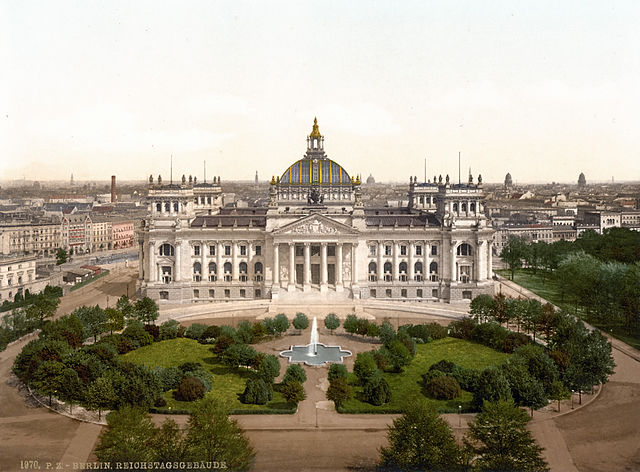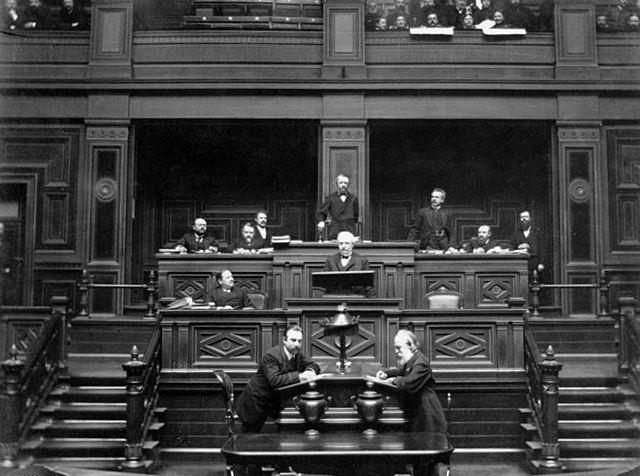Wojciech Korfanty was a Polish activist, journalist and politician, who served as a member of the German parliaments, the Reichstag and the Prussian Landtag, and later, in the Polish Sejm. Briefly, he also was a paramilitary leader, known for organizing the Polish Silesian Uprisings in Upper Silesia, which after World War I was contested by Germany and Poland. Korfanty fought to protect Poles from discrimination and the policies of Germanisation in Upper Silesia before the war and sought to join Silesia to Poland after Poland regained its independence.
A plaque dedicated by the University of Wrocław to celebrate the 130th anniversary of Korfanty's birth in 2003. The text reads: Student of philosophy, law, and economics at Wrocław University; journalist, defender of Polishness, leader of the Silesian Uprisings; member of parliament and senator of the Polish Republic.
Reichstag (German Empire)
The Reichstag of the German Empire was Germany's lower House of Parliament from 1871 to 1918. Within the governmental structure of the Reich, it represented the national and democratic element alongside the federalism of the Bundesrat and the monarchic and bureaucratic element of the executive, embodied in the Reich chancellor. Together with the Bundesrat, the Reichstag had legislative power and shared in decision-making on the budget. It also had certain rights of control over the executive branch and could engage the public through its debates. The emperor had little political power, and over time the position of the Reichstag strengthened with respect to both the imperial government and the Bundesrat.
Reichstag (German Empire)
The Reichstag's new building as of 1894
Speaker's platform, presidium and stenographers
Otto von Bismarck





